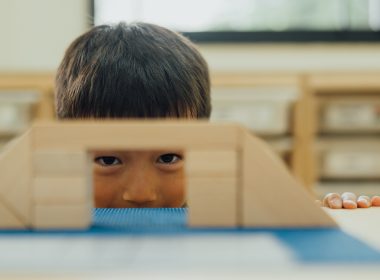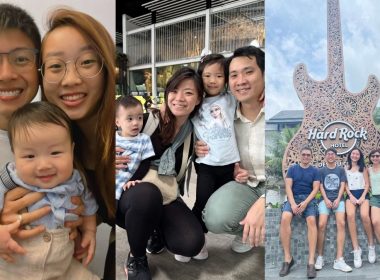by Rosalind Linus Jeraled
Imagine your child running up to you when you pick them up from preschool, eyes sparkling with excitement and roaring to share every detail of their day with you. “He was very excited to share with me what he learned in school, and I can tell he really had fun doing up crafts with his classmates”, shares Jacqueline, mother of Ayden from Nursery class.
This is what happens at Little Seeds Preschool (Sonshine), where children from Nursery (Sunshine) to K2 (Starlight) get to engage with learning that truly captivates them. It is common to see children responding with joy and enthusiasm by voicing thoughtful questions, offering predictions, and proudly sharing their ideas in Topic of Inquiry (TOI) lessons.
The problem with “sit still and listen” learning
In traditional education, students memorise information and regurgitate it on command. While this approach might provide children with facts and figures, it rarely ignites the spark of lifelong learning.
Today’s children need more than just information, they need to learn not just what to think, but how to think, collaborate, and care for their community. As educators, it is our responsibility to nurture their natural curiosity and help them make sense of the world around them.
Topic of Inquiry: learning that follows the child
At LSP, children explore themes that emerged from their own interests, creating authentic opportunities for them to observe, investigate, and ask questions. We listen to what captivates our students – when they’re fascinated by playgrounds, we take the opportunity to explore design, safety, and community spaces; when transportation catches their attention, we investigate how people and goods move around the world.


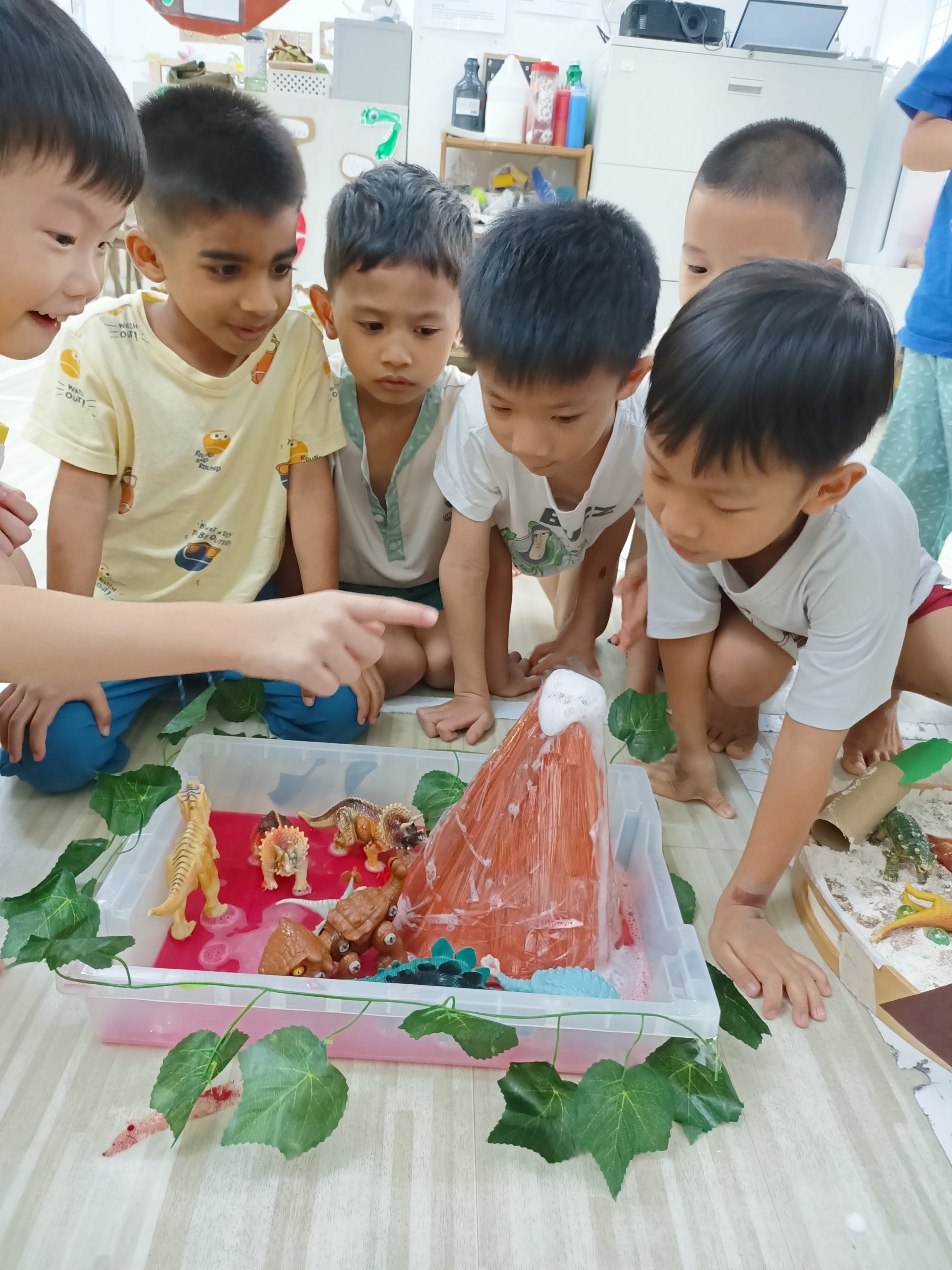
Our K1 students exploring dinosaurs – paleontology, volcanoes and more – through hands-on activities!
Our TOI lessons also grow with every child. For Nursery children, teachers focus on letting them find wonder in observing simple changes and patterns. For K1 children, we let them test out different possibilities through hands-on activities, while K2 children are encouraged to take their learning further by discussing real-life applications and explaining their findings to their peers.
Real stories, real learning
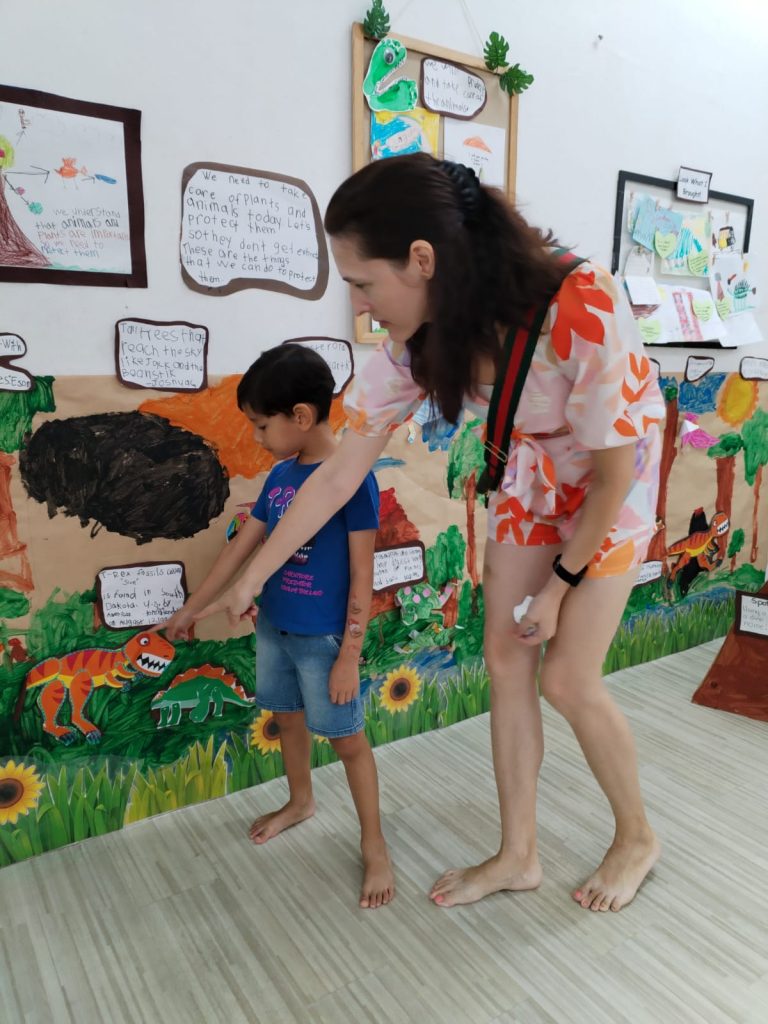
Stephen’s Dinosaur Adventure
When Stephen’s K1 class began exploring dinosaurs, learning went beyond the classroom. “He shared with us at home that he learned different names of dinosaurs, what they ate, and how they lived and died,” explains his mother, Cristina. “My child often talks about dinosaurs at home, asks curious questions and even pretends to dig for fossils. I noticed that he has started to compare and think about differences, which shows growing problem-solving skills.”
This is the power of inquiry-based learning in action – discovery that develops critical thinking skills naturally.
Skyler’s Transportation Journey
In Teacher Mary’s K2 class, transportation became more than just learning about cars and trains. “Rather than presenting them with facts about transportation and making them passive receivers of learning, Teacher Mary encouraged the children to expand their imagination and co-create the classroom content,” shares Skyler’s mother, Sheryl.
Learning was also made concrete: “The visit to the SG Mobility Gallery also helped the children connect what they learned in class with the real world.”
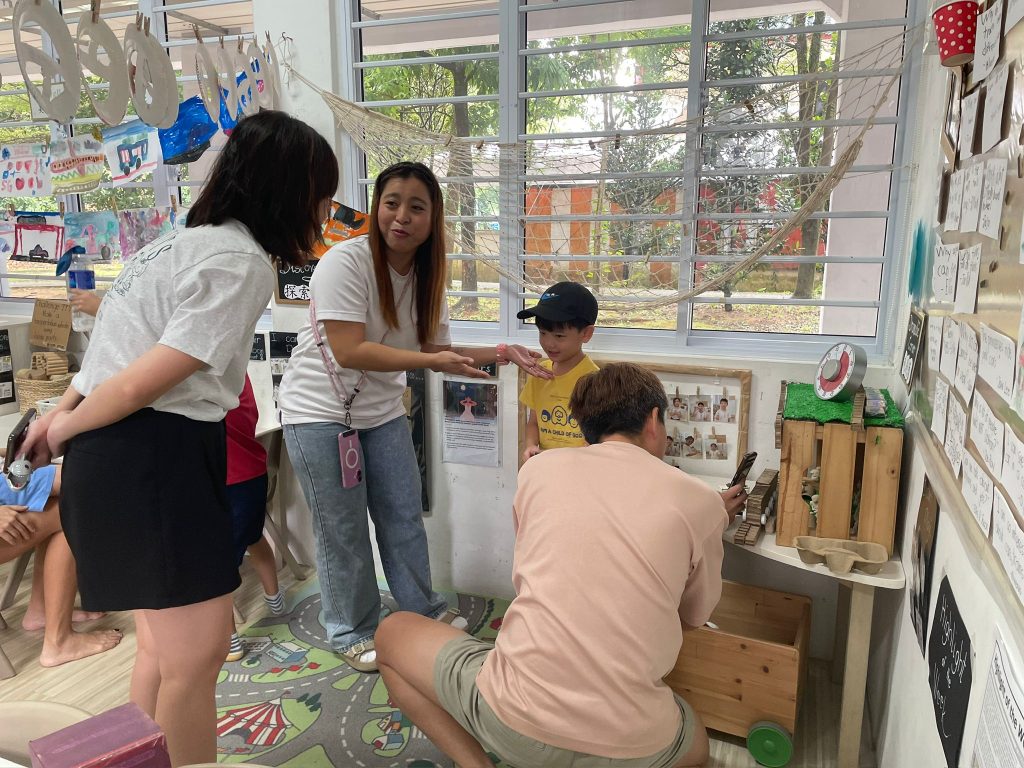
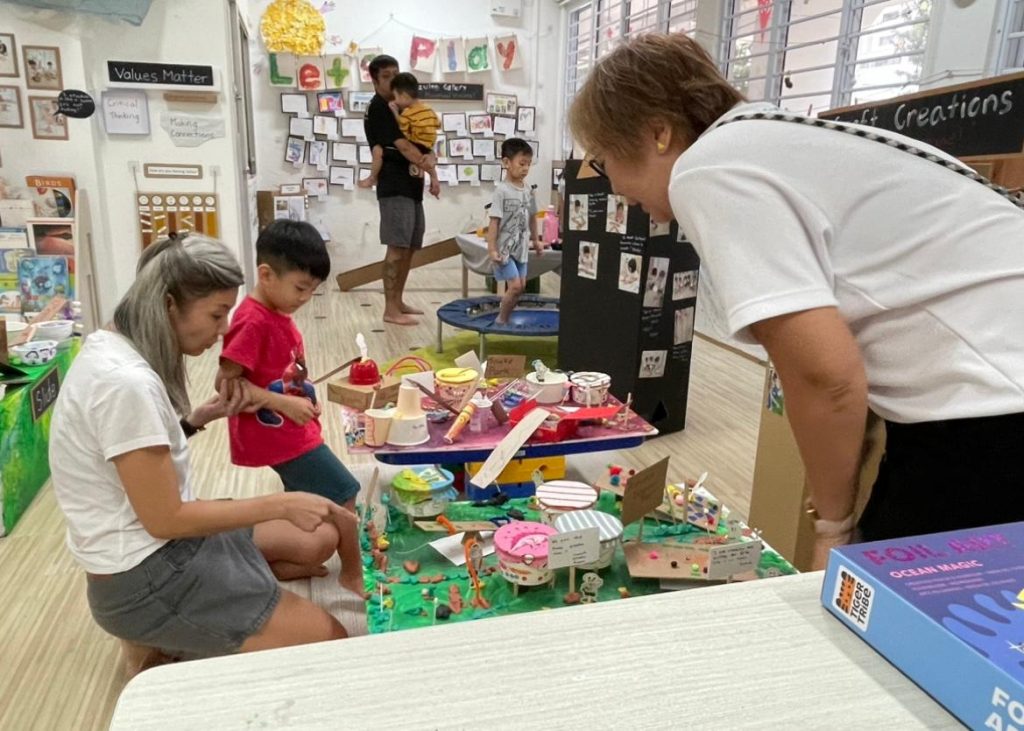
Ayden’s Playground Discovery
When Ayden’s Nursery class investigated playgrounds, learning became deeply personal. “The learning is very meaningful for him, because playgrounds are something he can relate to easily. He not only enjoyed himself but also became more aware of how they are designed for fun, safety, and playing with others,” notes his mother, Jacqueline.
But perhaps, most importantly, “Ayden has developed confidence and creativity in sharing his thoughts, learns to collaborate with classmates while forming his own perspectives.”
The Magic Moment: when learning becomes connection
“It worked because my friend and I tried together!”
A K1 child after successfully experimenting with a solution alongside a friend
This simple exclamation of delight beautifully captures the essence of our TOI lessons: discovery is joyful, purposeful, and lasting when children learn not only about the world but also with and for one another.
These experiences lead to meaningful lessons about fairness, perseverance, and caring for others. For instance, when one child helped a friend who was struggling with a task, the group reflects together on how kindness and cooperation can make challenges easier and more enjoyable.
Such everyday moments naturally become powerful starting points for conversations on values.

How parents see the change—and extend the learning
The transformation in our children extends far beyond classroom walls. Parents witness their children growing in confidence and communication skills, becoming more willing to share ideas and articulate their thoughts. Sophisticated thinking skills also emerge naturally. Stephen’s mother noticed he started to compare and think about differences, while other parents note their children developing stronger collaborative abilities and forming their own perspectives.
The children’s curiosity also spills into family life as topics in family conversations, and even recreated learning experiences through play at home. Parents play a vital role here in extending these lessons at home by encouraging their children to take part in simple family responsibilities, modelling kindness in daily interactions, and asking open-ended questions that inspire reflection and deeper thinking.
Building tomorrow’s learners
Teaching through inquiry equips children not only with knowledge but also with character, resilience, and the ability to work well with others. When we honour children’s natural curiosity and build learning around their genuine interests, they develop communication confidence, empathy, and self-directed learning skills essential for 21st-century success.
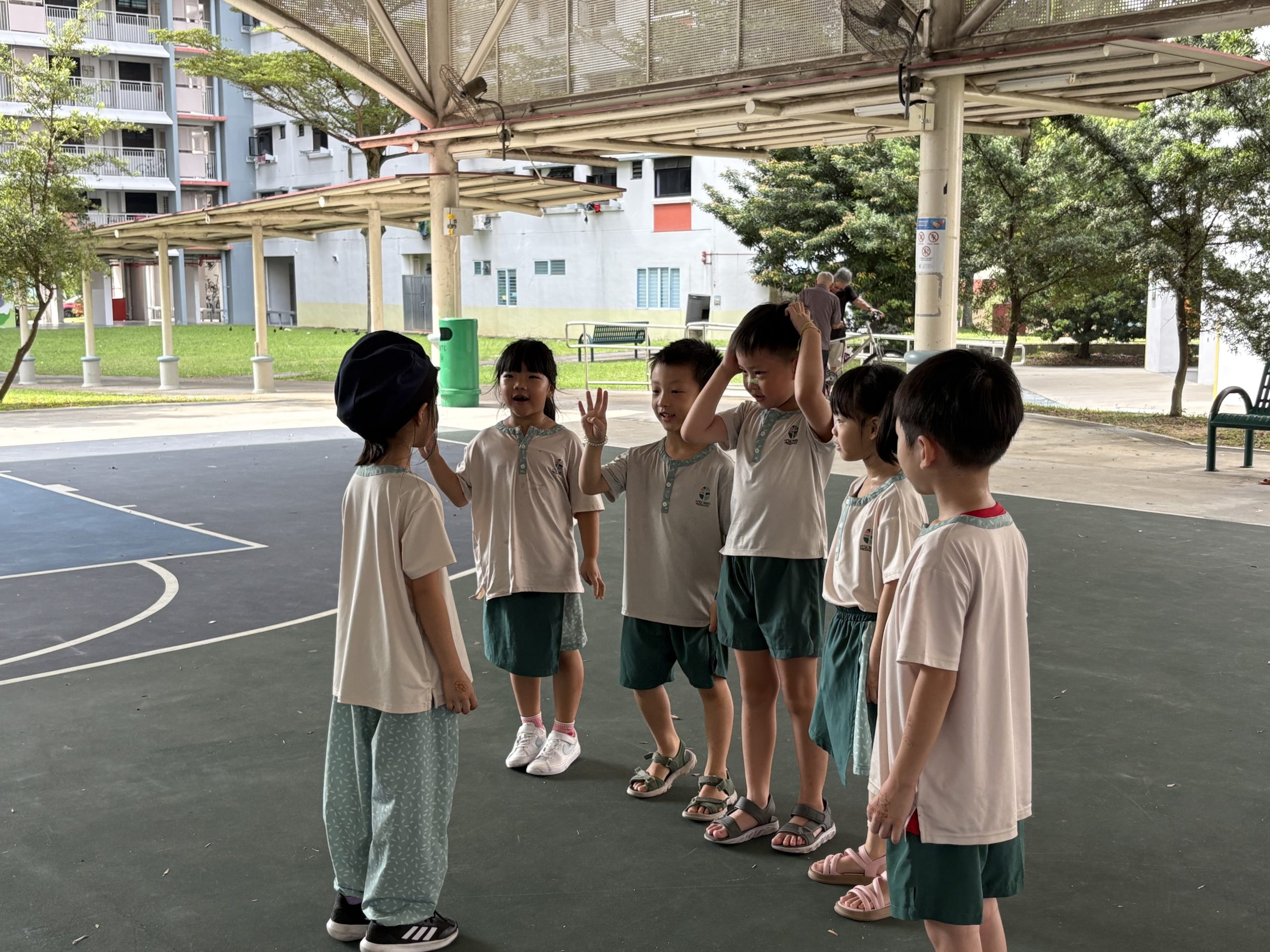
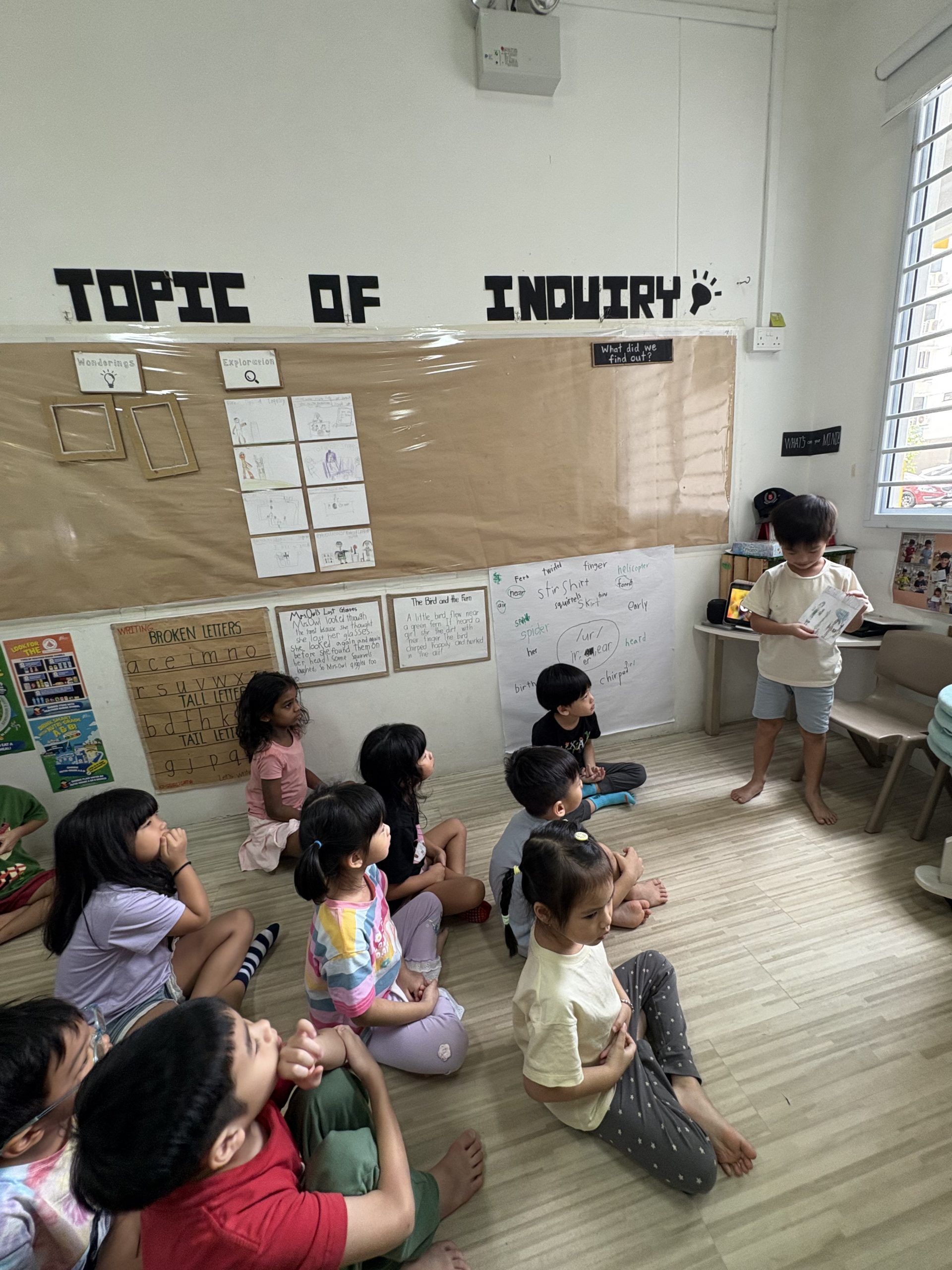
The K2 children role-played as passengers and station attendants outdoors, practising public transport etiquette. They also shared their favourite modes of transport during show-and-tell.
“I could see that the children took ownership of their creations, and they were so proud to see their work exhibited!” shares Skyler’s mother. Beyond just skills, the pride and joy that the children feel become a foundation for a lifetime of learning. These self-led explorations focus on the process of learning, not just the product. Children learn that their voices matter, their questions have value, and their discoveries connect to caring for themselves, others, and our shared environment.
Final thoughts
At Little Seeds Preschool, we believe that every child is naturally curious and inherently creative. Our Topic of Inquiry approach simply creates the space for these qualities to flourish. “I feel the topic of inquiry module is very helpful for children, as it encourages curiosity, creativity, and confidence while supporting overall development through hands-on and meaningful learning experiences,” reflects Cristina, Stephen’s mother.
When learning becomes an adventure of discovery, children don’t just prepare for the future, they help to create it.
Rosalind Linus Jeraled is the Principal of Little Seeds Preschool (Sonshine)



